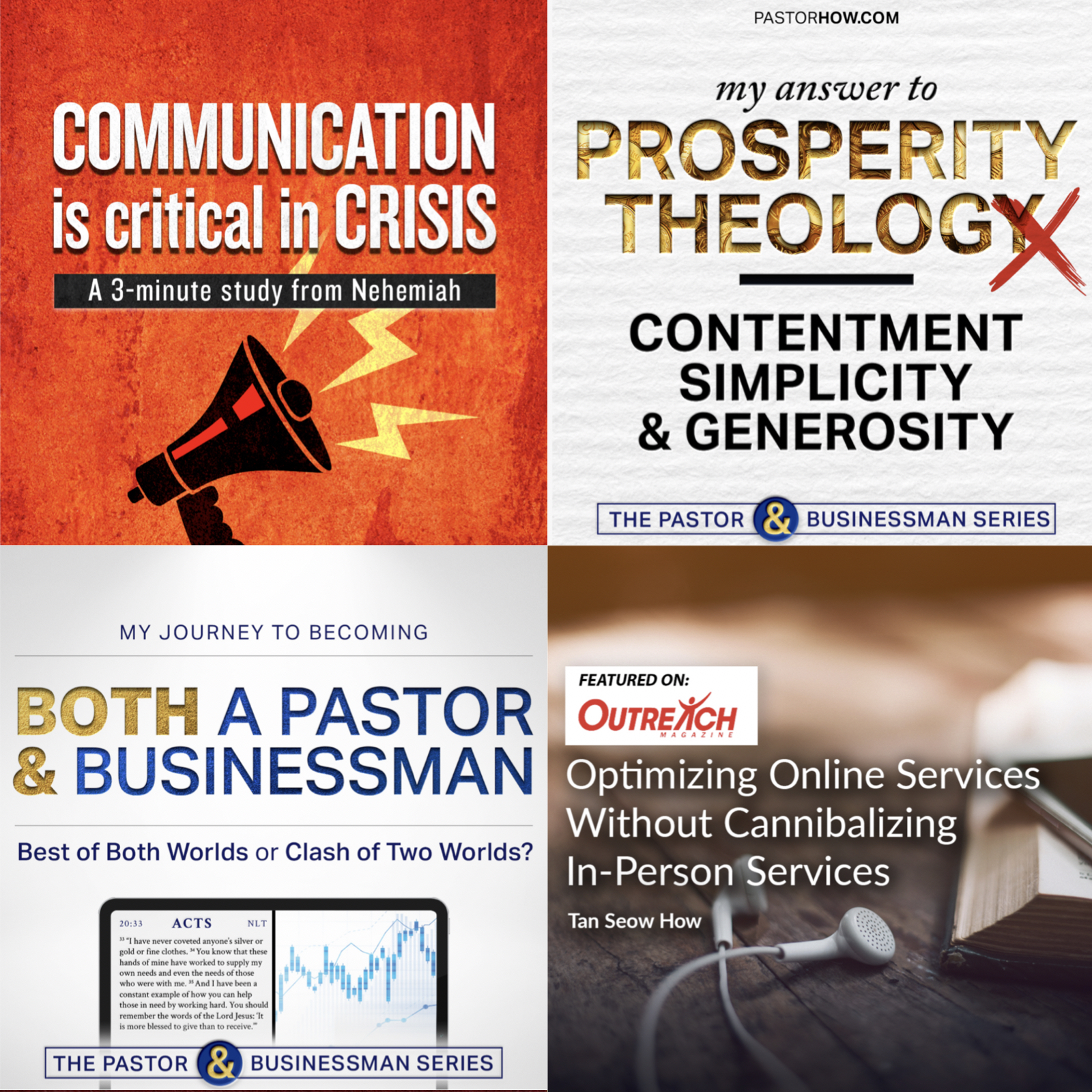
Receive leadership principles for building a Strong Church
English | 繁體中文 | 简体中文 | Español | Deutsch | ภาษาไทย
I came across this quote recently.
“The church began as a movement in Jerusalem.
It became a philosophy in Greece, an institution in Rome, a culture in Europe, and when it came to America, it became a business…a highly profitable business. But Jesus is coming back for a movement.”
Unfortunately, this form of unbiblical Prosperity Theology is not just within America but it’s also global, from first-world to third-world.
In this little article, it is not my intention to debate about Prosperity Theology. There will be supporters and opponents, arguing from both sides and interpreting Scriptures with different lenses.
Personally, I would rather focus on the motives behind the message and the motivations behind the man. To me, it is very simple – Is the message preached Christ-centered, others-centered or self-centered?
So if Prosperity Theology is about generosity, charity, philanthropy and benevolence, then I teach it unapologetically. If it is about giving to build the church, missions and God’s kingdom, then I preach it unashamedly.
However, if Prosperity Theology is about enriching self by manipulating people with false promises and peddling false hopes, then it is a heresy.
If Prosperity Theology reduces God to a genie in a bottle and degrades Him to a heavenly sugar daddy, then it is blasphemy and I reject it in the name of Jesus.
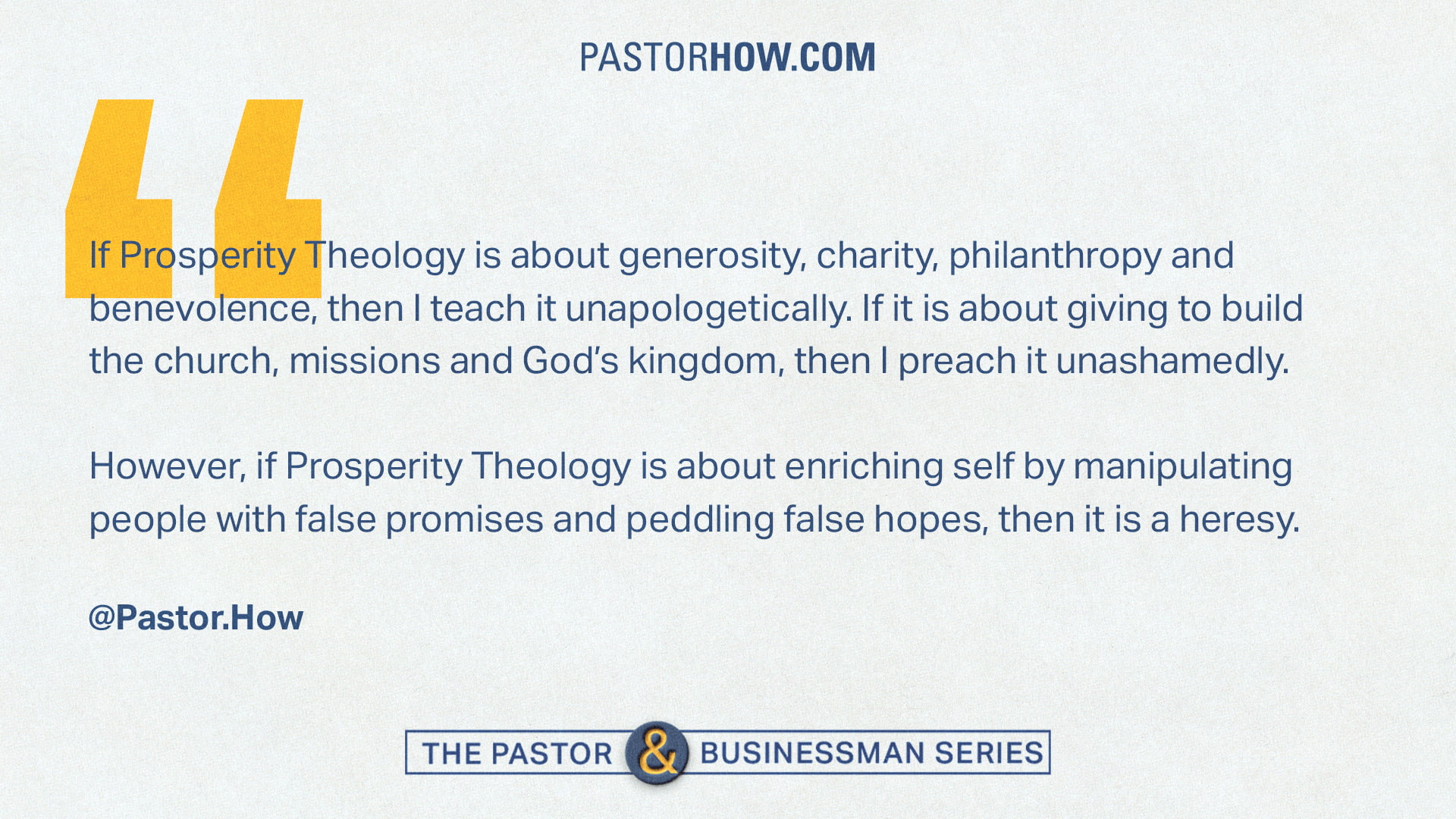
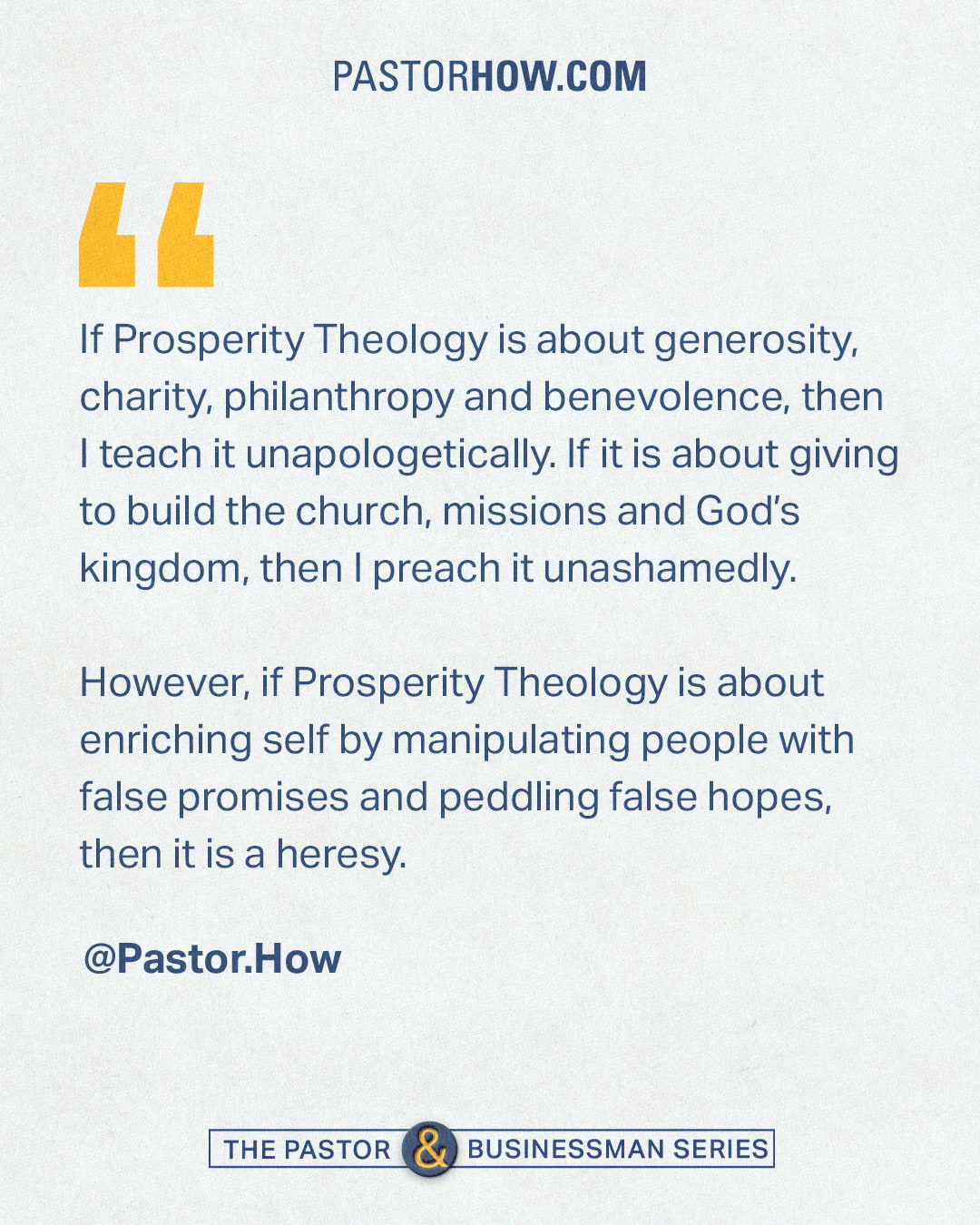
The title of this commentary is—My Answer to Prosperity Theology. The emphasis is on “My Answer”. So, it is my personal conviction and revelation. It is not intended to be a benchmark for anyone to follow or a standard to be imposed on anyone. It most certainly should not be used to judge anyone.
1 Timothy 6:6–8 (NKJV)
6 Now godliness with contentment is great gain.
7 For we brought nothing into this world, and it is certain we can carry nothing out.
8 And having food and clothing, with these we shall be content.
Paul said: “I have learned to be content.” (Phil 4:11)
In other words, contentment has to be learned.
It is not natural.
There is no end to getting more, gaining more, wanting more.
“I will be happy when I have enough”—is like a dog chasing its own tail.
Contentment is learned by subtraction, not addition. In other words, we are content not by adding more ‘things’ but by subtracting appetites.
True wealth is measured by what money cannot buy and what death cannot take away.
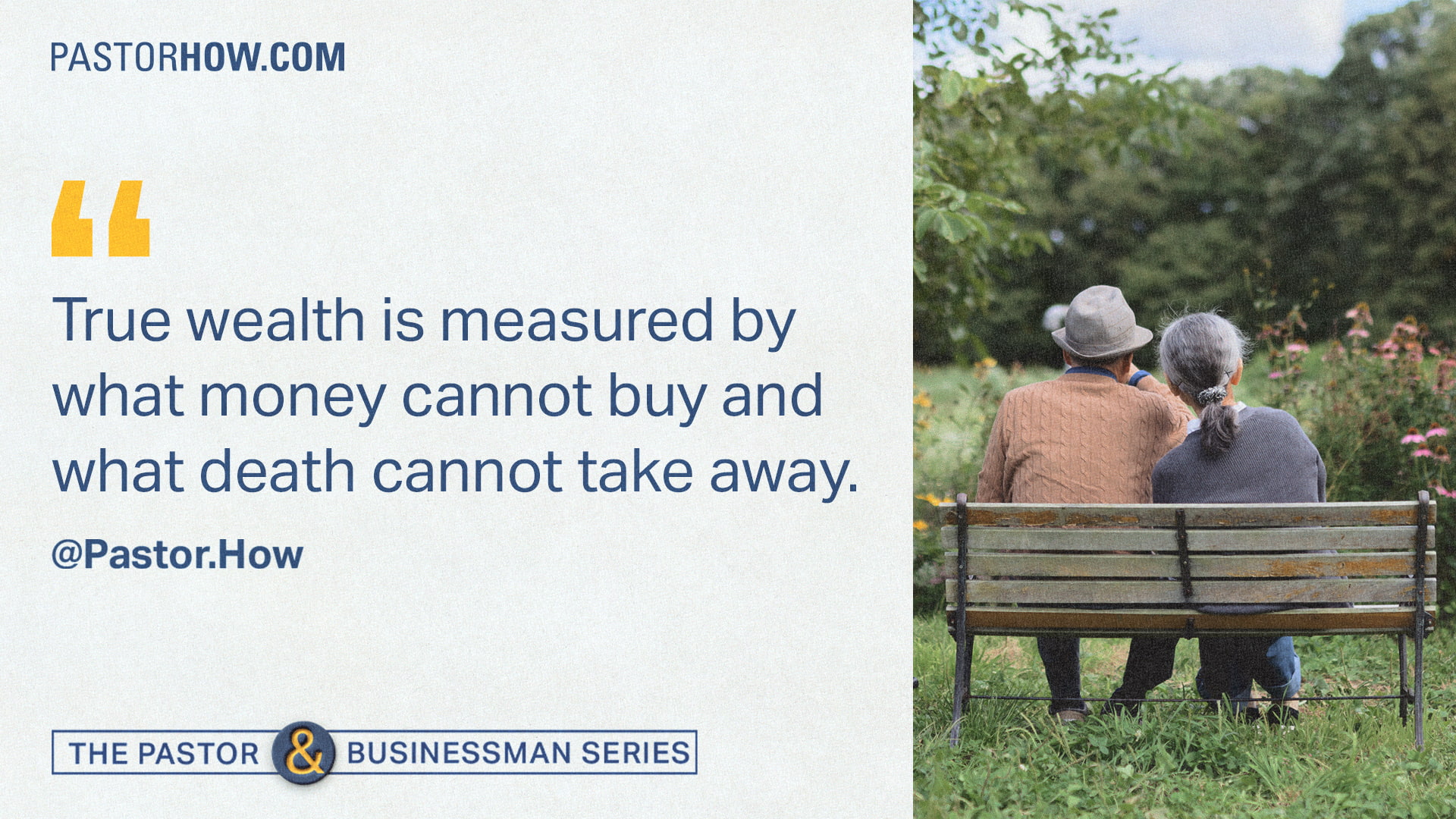
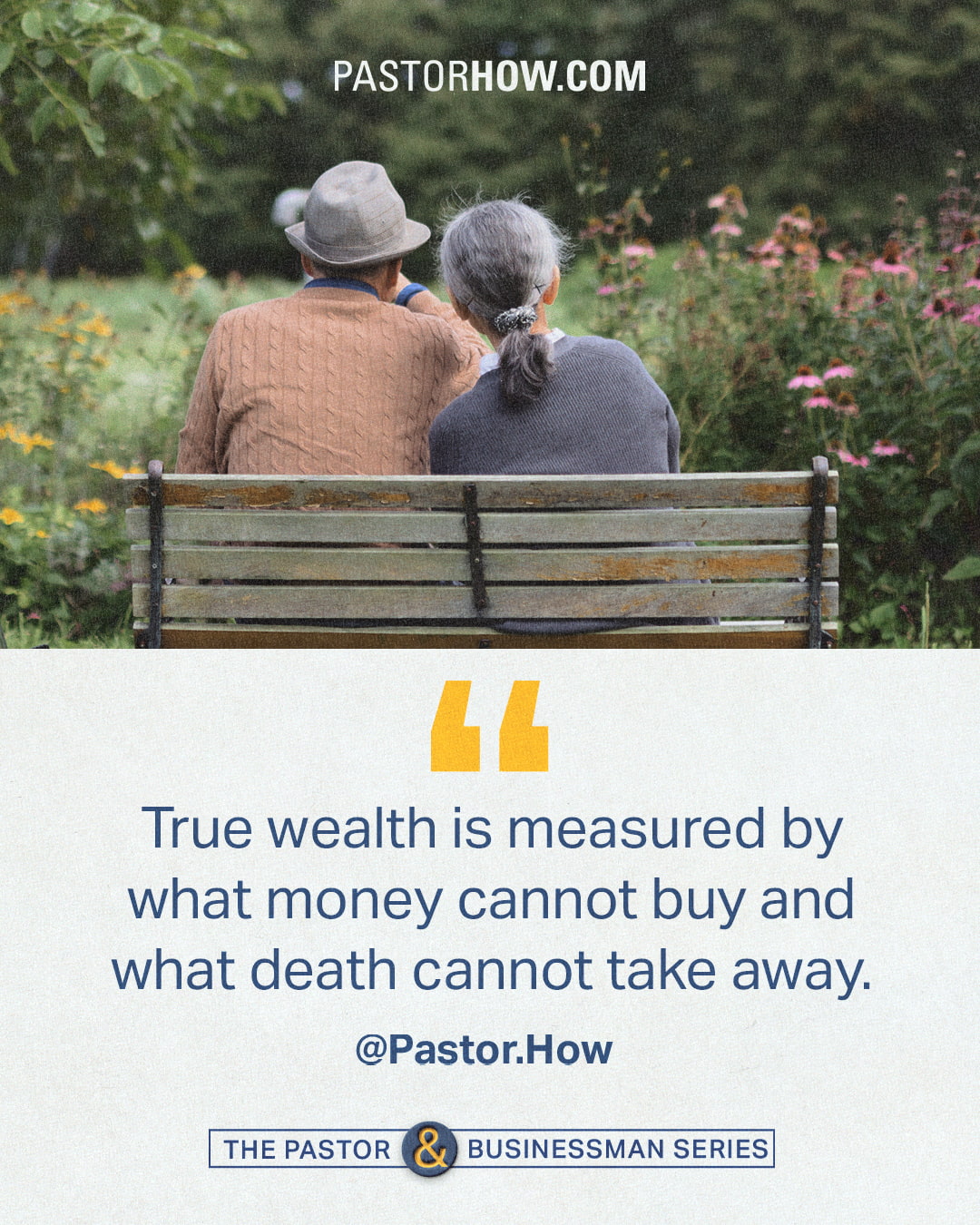
But a word of caution—don’t confuse contentment with satisfaction.
Contentment comes out of simplicity.
Satisfaction comes out of complacency.
We should be contented but never satisfied because we can never rise above our level of satisfaction. Therefore, I am content with my life and lifestyle but I am never satisfied with my ministry and service to God.
Acts 2:44–47 (NKJV)
44 Now all who believed were together…
46 So continuing daily with one accord in the temple, and breaking bread from house to house, they ate their food with gladness and simplicity of heart,
47 praising God and having favor with all the people. And the Lord added to the church daily those who were being saved.
When I read this passage of Scripture as a young pastor pioneering Heart of God Church (HOGC), I was very intrigued with v47b, where the Lord added to the church daily. Now after almost 20 years in ministry, I am more attracted to v46b, where the disciples ate their food with “simplicity of heart”.
In my own ministry, I have found that growing a church is relatively easy. Keeping the heart and life of simplicity is harder.
Singapore is a place where we know the price of everything but the value of nothing.
We know the price of a house but not the value of a home.
We know the price of dinner but not the value of fellowship.
Our children know the price of an iPhone but not the value of communication.
On the other hand, these “primitive” disciples ate their food with the simplicity of heart. They had something we don’t.
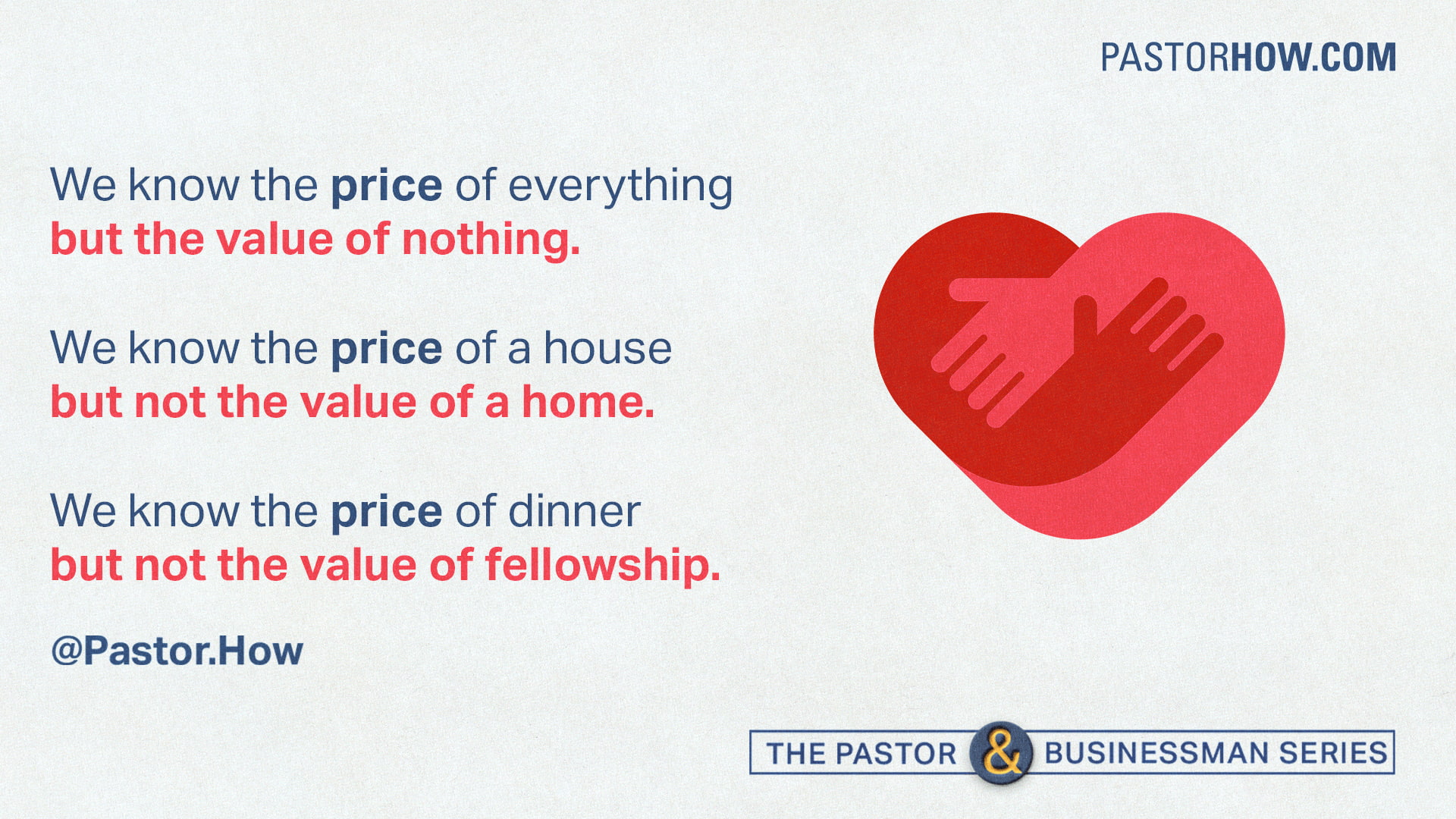
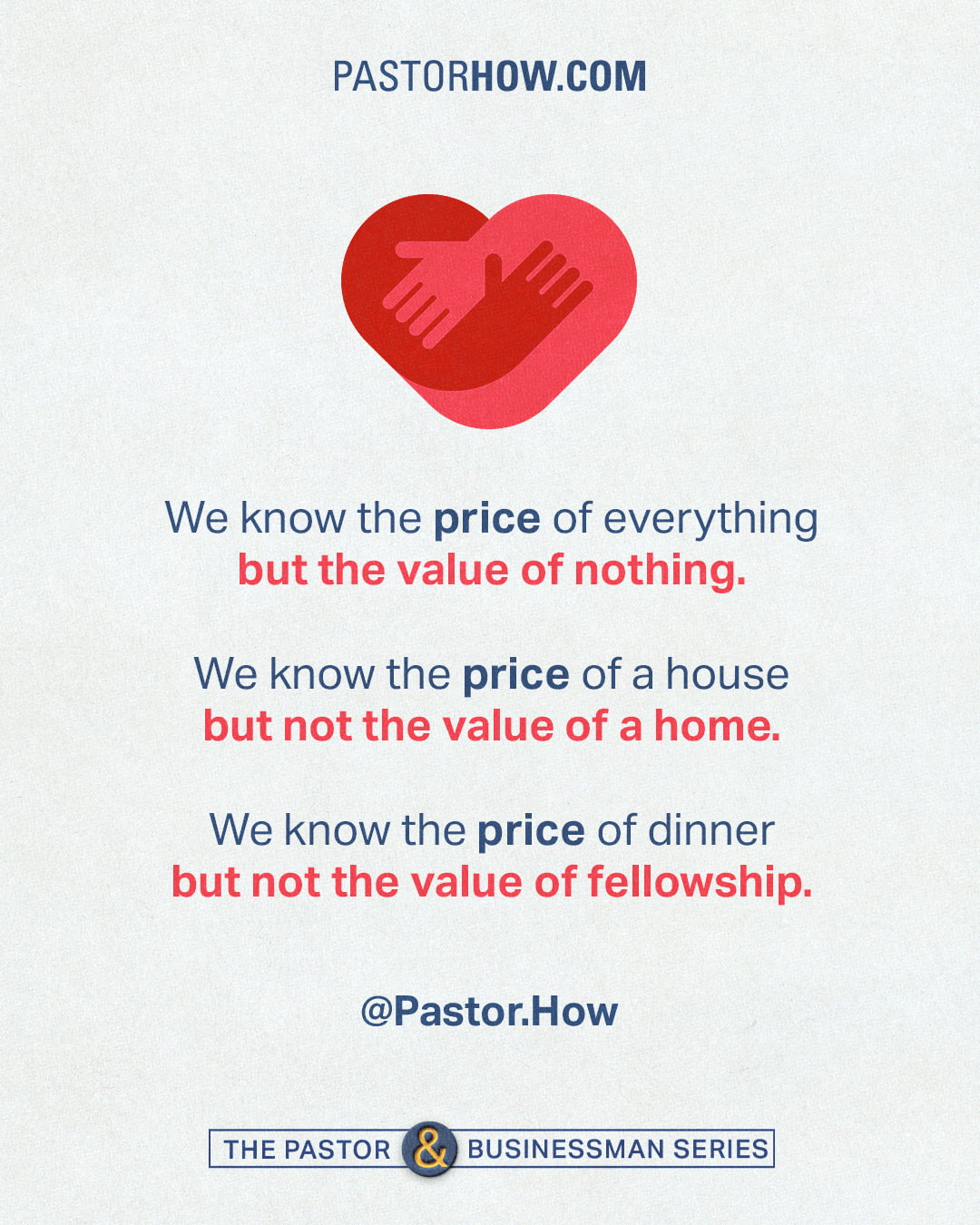
I believe that being rich is not how much you have but how little you need.
My staff complain that it is difficult to buy me birthday gifts, not because I am difficult to please, but because I simply don’t need anything. And I don’t need anything, not because I have everything, but because there is almost nothing I want. The ongoing joke is that whenever they ask me what gifts they can buy me, my answer is, “Ok, buy me 50 more good leaders from eBay.”
My wife, Pastor Cecilia Chan and I, have chosen to live simply. I grew up living in a house in District 10 (for my non-Singaporean readers, that’s an expensive neighborhood). After we got married, we have been living in a Woodlands HDB flat (that’s probably the cheapest neighborhood) for almost 20 years.
In the early years, that’s what we could afford. But now we can easily move to a bigger house in a nicer neighborhood. The first reason for choosing to live simply is our personal covenant with God. Inspired by the words of Haggai 1:4, we made a commitment to build God’s house first, then build our own house. So perhaps after Heart of God Church moves into our new Home, then I will move my home closer to church.
The second reason for choosing to live simply is our decision to give one million dollars to our church’s Building Fund a few years ago. Pastor Lia received a big insurance payout because of her cancer. Together with profits from my business and all of the insurance money, we took that leap of faith.
This brings me to…
When God blesses you financially, it is not just to raise your standard of living but your standard of giving.
If we are content with our lives and lifestyles, then the additional income goes into our giving.
However, if we are never contented, our appetites and expenses will grow with our income. Consequently, we will never be able to give more.
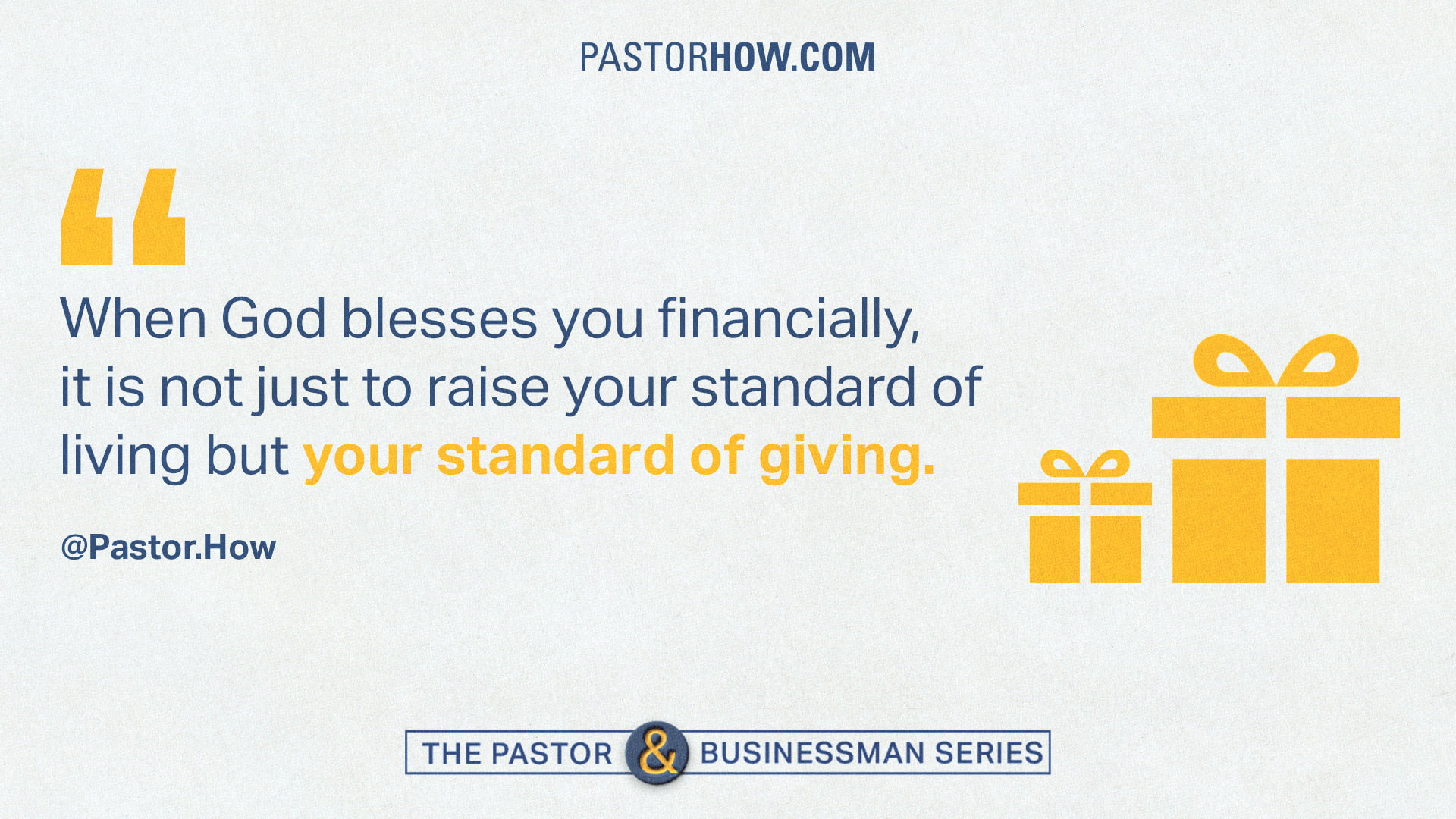
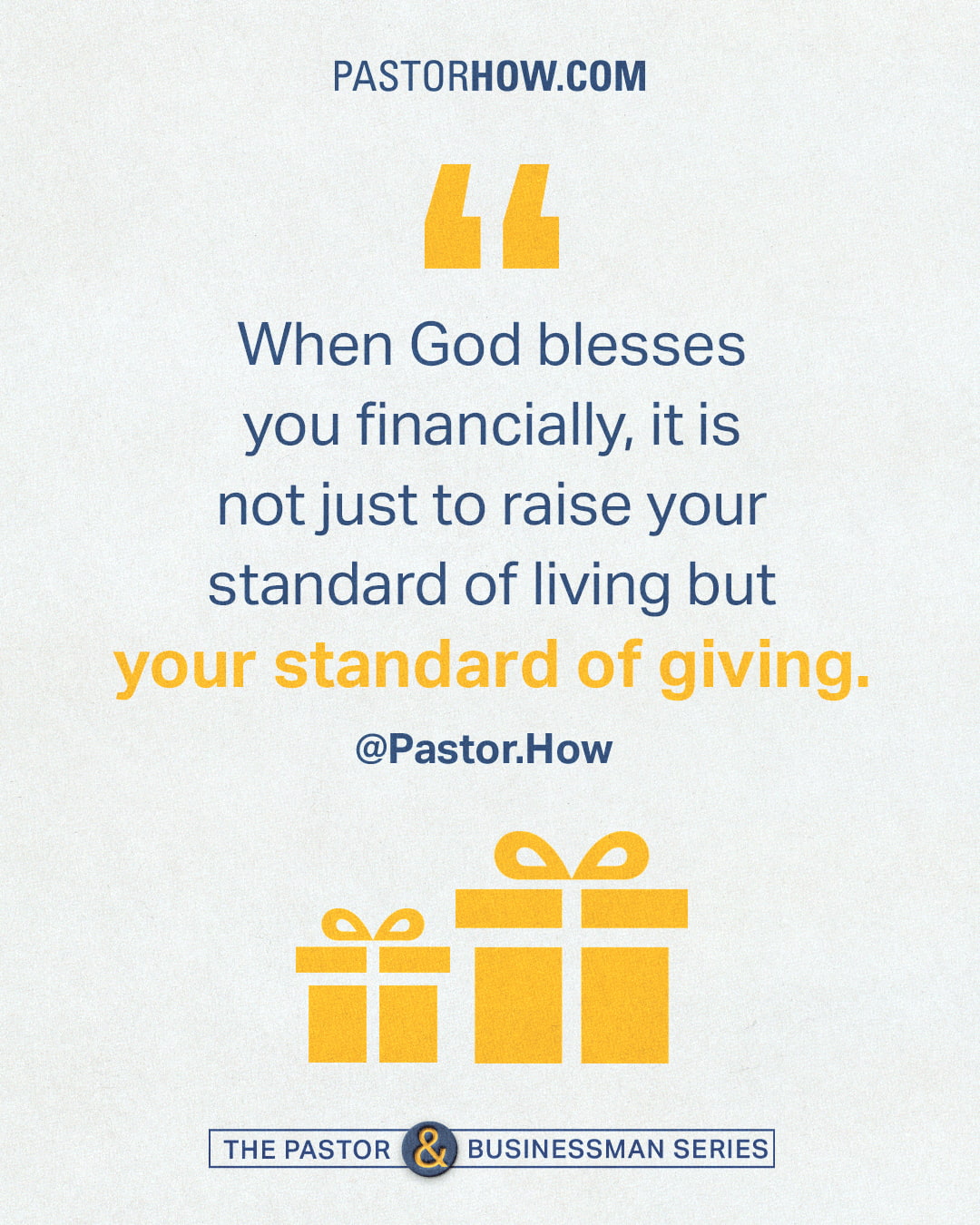
When I took over my dad’s business, the Lord spoke to me from this verse.
Acts 20:33–35 (NKJV)
33 I have coveted no one’s silver or gold or apparel.
34 Yes, you yourselves know that these hands have provided for my necessities, and for those who were with me.
35 I have shown you in every way, by laboring like this, that you must support the weak. And remember the words of the Lord Jesus, that He said, ‘It is more blessed to give than to receive.’
Paul was a tentmaker. I am inspired by Paul to be a tentmaker as well.
Like Paul, I want to be able to say that “I have coveted no one’s silver or gold”.
Like Paul, I want my own hands to provide for my necessities and for those who are with me (my team).
Now my business pays for my travels for missions and preaching.
The business supports my team.
The business pays for the renovations and furnishings of my personal office and the guest room.
And like Paul, I want to give more than I receive.
On balance, I need to add that being a Christian is not enrollment into a frugal, miserly life of austerity. When I became a pastor, I certainly did not take a vow of poverty.
I believe God is a good God and He wants to bless us, heal us and give us an abundant life. There’s nothing wrong with nice things, holidays and enjoying life. Pastor Lia and I do have some branded bags and pens that are gifts to us. We have no problems using them.
However, we also know that God is also more interested in our holiness than our happiness. He is more concerned about our character than our comfort.
I am not against a Biblical, Christ-centered, purpose-driven Prosperity. After all, our National Pledge ends with—“…so as to achieve happiness, prosperity and progress for our nation.”

Receive leadership principles for building a Strong Church
SP, your comment that contentment is learned by subtraction and not addition really spoke to me!
Listening to you has transformed my reasoning. Indeed you are a blessed man.
An article that changed my entire mindset about finance – how to navigate money in the world with a spiritual aspect. As a businessman, it has been the main guiding principle of how I manage my finances. I strongly encourage everyone to give this a read. Thank you Pastor How for this articulating in such a clear and wise manner.
My son Winson Toh was in your church since Secondary 2, I saw the changes in him as he was growing up together with his church. I enjoyed reading all the
articles written here even though I am not a Christian.
Thanks to you and your church members for creating such a great environment for him to learn about Christianity .
Dear Pastor How,
I am convinced you are a good man and pastor. From District 10 to Woodlands.
I have never heard you preach but hope every sermon will focus on His finished Work and His Example.
God’s grace be on you!
Dear Pastor How
I get to know your name through this commentary column after reading your great article.
I have only this to say. It gives me great comfort that my lovely daughter Evonne Chia is at the right place. My faith in her time spent at the church has never been better.
Thanks for sharing your great thoughts
Besy regards
laurence
This post is a blessing to me. You’ve given me a clearer understanding of the place of wealth and how to put wealth in its place. Thank you!
Dear Pastor How, thank you for sharing your thoughts through your blog.
As a Christian parent, I am very careful with the kind of teachings that my teenage children would be exposed to in church. (And I can see that your church comprises of many young people.)
After reading your post, I feel that this message is balanced and also biblical. I am glad that the young people in your church are receiving balanced, biblical teachings.
I look forward to read more of your insightful posts.
Pauline Tan (Mrs)
Thank you for sharing this, Pastor How!! I remember you sharing with us that money doesn’t change us, but it reveals and amplifies who we are. Since the earlier days of the church, you have always been generous towards the members – and this was even before you were running a business. Up till today, you still do the same even though the church is so much bigger. That got me wondering how we could afford to be generous to others as we grew up… This article gives so much insight and answers my questions! Contentment, Simplicity, and Generosity (:
I find this article very assuring. My children have been visiting Heart of God church the last few months and they have been enjoying themselves. I am glad to see that they are going to a church that takes a more balanced approach. Good job Pastor How.
Wow thank you Pastor How for sharing the importance of living with the right values!
I’ve been living in Woodlands for the longest time that I can remember and it really is quite a hassle to travel between home, work and just about anywhere else in Singapore, doesn’t matter if you travel by car or take the public transport, with the one million dollar that you gave for the church’s building fund, you could have easily bought a nicer and better located place to stay to enjoy the comfort and shorter traveling time, instead you gave it all away! This really shows that you not only talk the talk but you walk the walk!
In our current society, where it advocates the need and greed to get more and more no matter how much you possess and our “kiasu” spirit, it takes greater tenacity to live life with contentment, simplicity and generousity!
Especially as a young working adult, I’m personally very inspired to give more than I receive and to live a life that’s living for others!
This brings to mind a quote by Jim Elliot: “He is no fool who gives what he cannot keep to gain what he cannot lose.”
Looking forward to more articles!
Not a Christian – but good to see not all pastors out there are bad…
Contentment is the key.. You can have the world, but if you’re not contented with what you have, then you’ll always be wanting more more more..
Thank you Pastor How for sharing about the difference between contentment and satisfaction in service. It really changed my mindset that it is not about what we have but how little we need!
Wow.. This is so true! A lot of my friends who have started working recently have been instagramming food that they eat at high end restaurants, or trips to Europe or America etc, and a lot of times it seems like it is a sense of “freedom” from now having a full salary and being able to splurge.. But Pastor, your point about Generousity really hit home!! We don’t really need more high class food, or expensive trips all the time, but our money can be used to help others around us that are more in need.. Thank you Pastor for this article!!